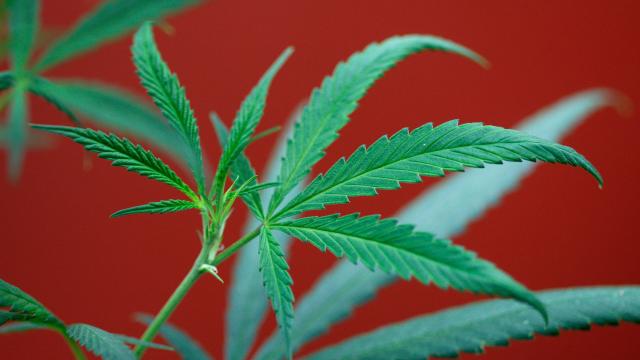A new study seems to deal a serious blow to one of the pro-cannabis movement’s talking points: the idea that the more medical cannabis is legalised, the fewer people will die from opioid overdoses. The findings suggest that there’s no real connection between the rate of opioid overdose deaths and a state’s medical cannabis laws, at least not anymore.
In 2014, a tantalising study found that the annual opioid overdose rate was lower in states that had legalised medical marijuana than in states that hadn’t. The average difference was around 25 per cent lower, and as the years went on, the gap got bigger (the time period the study looked at was from 1999 to 2010). The study has since been widely cited by pro-cannabis advocates as well as public health experts. And later studies, such as those looking at the amount of medical cannabis dispensaries in a state, have also found a similar connection between greater access to medical cannabis and a state’s opioid overdose rate.
But the landscape of the opioid crisis as well as cannabis legalization has changed drastically since 2010. Overdose deaths have skyrocketed, with the majority now caused by potent synthetic drugs like fentanyl rather than heroin or prescription painkillers. And while only 10 states had legalised medical cannabis during the study period, cannabis is now legal in 33 states, including recreationally in 10 states.
The researchers behind this new study, based primarily at Stanford University, used the same design as the 2014 study, but with data updated to 2017. As before, they found, the same basic pattern held up until 2010, but by 2012, it began completely reversing direction. By 2017, states with medical cannabis laws were actually associated with a 23 per cent higher annual opioid overdose rate. This now negative connection remained even after the researchers took into account how strict a state’s cannabis laws were, like whether they also allowed recreational use.
The study was published Monday in PNAS.
The researchers aren’t saying that medical cannabis laws are causing more people to die from opioids, though. They’re arguing that, given how quickly the needle jumped from 2010 to 2017, these policies probably never had—and aren’t having—a real large-scale effect on overdose deaths.
“Medical cannabis users are about 2.5 per cent of the population, making it unlikely that they can significantly alter” a state’s opioid overdose rate by any noticeable amount, the authors said.
Instead, the 2014 study and others like it might have been actually picking up on other factors more common in the first states to legalise cannabis. These factors, such as better healthcare, lower incarceration rates for drug use, or greater access to opioid use disorder or overdose treatment, could have been the real cause of fewer opioid deaths.
The findings, disheartening as they are, don’t invalidate the need to continue studying the positive health benefits of cannabis and its ingredients, like cannabidiol (CBD), the authors said. And they don’t even necessarily contradict early research that’s suggested taking cannabis or CBD can supplement existing addiction treatment or reduce the amount of opioids needed to manage pain.
What this research does show, though, is that we should always tread carefully when looking at a single study’s results in isolation, especially when they point to something we’d like to be true. It also highlights that there’s not going to be a silver bullet for helping people through the overdose crisis this country is still facing.
“Cannabinoids have demonstrated therapeutic benefits, but reducing population-level opioid overdose mortality does not appear to be among them.” the authors wrote.
